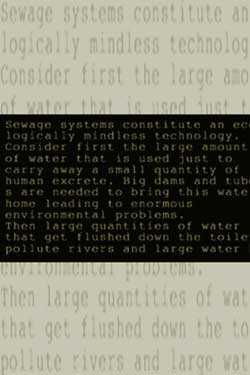 "Surely Mr Bajaj, you do not want to make
money in a way that occasions mass murder? Indian industrialists, from Bajaj to
the Tatas and Birlas, have walked away with an environmental rape of unbelievable
proportions — a process that incomponent and dishonest bureaucrats and politicians
have aided and abetted. "Surely Mr Bajaj, you do not want to make
money in a way that occasions mass murder? Indian industrialists, from Bajaj to
the Tatas and Birlas, have walked away with an environmental rape of unbelievable
proportions — a process that incomponent and dishonest bureaucrats and politicians
have aided and abetted.What is the point, Mr Bajaj
of honouring Gandhian social activists with Jamnalal Bajaj Awards while you yourself
cannot follow the principle of trusteeship so ardently advocated by the Mahatma?"
Down To Earth, May 30, 1993
  
"After decolonisation and national
sovereignty, the key political issues of the 20th Century, will community sovereignty
become the biggest political issue of the 21st? If, as environmental
economists point out, the environment should be valued and not treated as a free god, then
automatically the question is: Who should value the environment? Obviously, who better
than the very people whose environment it is and who will suffer the consequences of their
own decisions? It is best that they decide the trade-off between environment and
development and where and at what point they want to balance the two.
If the world economy is to be run by a globally
integrated market in which nation-states become weaker and economically subordinated to
supranational institutions, then can we leave it to the nation state — even if its
governance system is built on principles of representative democracy to manage the
environment and determine resource-use patterns?"
Down To Earth, May 30, 1993
  
"This political economy of defecation is a
topic nobody talks about. Sewage systems constitute an ecologically mindless
technology. Consider first the large amount of water that is used just to carry away a
small quantity of human excrete. Big dams and tubewells are needed to bring this water
home leading to enormous environmental problems. Then large quantities of water that get
flushed down the toilet pollute rivers and large water bodies.
This…nobody talks about. But it lies at the heart of
the river cleaning programme of this country. It is neither rational, just or sustainable.
A proper approach would firstly demand that the polluter must pay. If the existing and
planned sewer systems are only serving the rich, then the rich must pay the full costs of
their ecological depredation."
Editor’s page, Down To Earth, July 31,
1994
  
 "The poor don’t need ‘development’.
They need ‘respect’. After respect they need empowerment. In a global
situation, full of market failures, where social and ecological costs are externalised, we
definitely need state interventions for the good of the majority. I strongly believe that
we need a universally guaranteed Global Right to Survival, not through dole, but one of
work so that the poor can use their labour to regenerate their destroyed ecology." "The poor don’t need ‘development’.
They need ‘respect’. After respect they need empowerment. In a global
situation, full of market failures, where social and ecological costs are externalised, we
definitely need state interventions for the good of the majority. I strongly believe that
we need a universally guaranteed Global Right to Survival, not through dole, but one of
work so that the poor can use their labour to regenerate their destroyed ecology."
Keynote speech delivered at the NGO Forum,
World Summit for Social Development, Copenhagen, 1995
  
"The western economic dream is a toxic
dream. And don’t listen to the typical tripe from Indian scientists and
officials that India’s consumption and production of toxic substances per capita is
zilch compared to Western countries. This is utter scientific nonsense trotted out to make
you apathetic. It is the exposure levels that matter, which can be very high in India,
because of among other causes, high pesticide residue in our food and low quality of
drinking water."
Editor’s page, Down To Earth, May 31,
1996
  
|